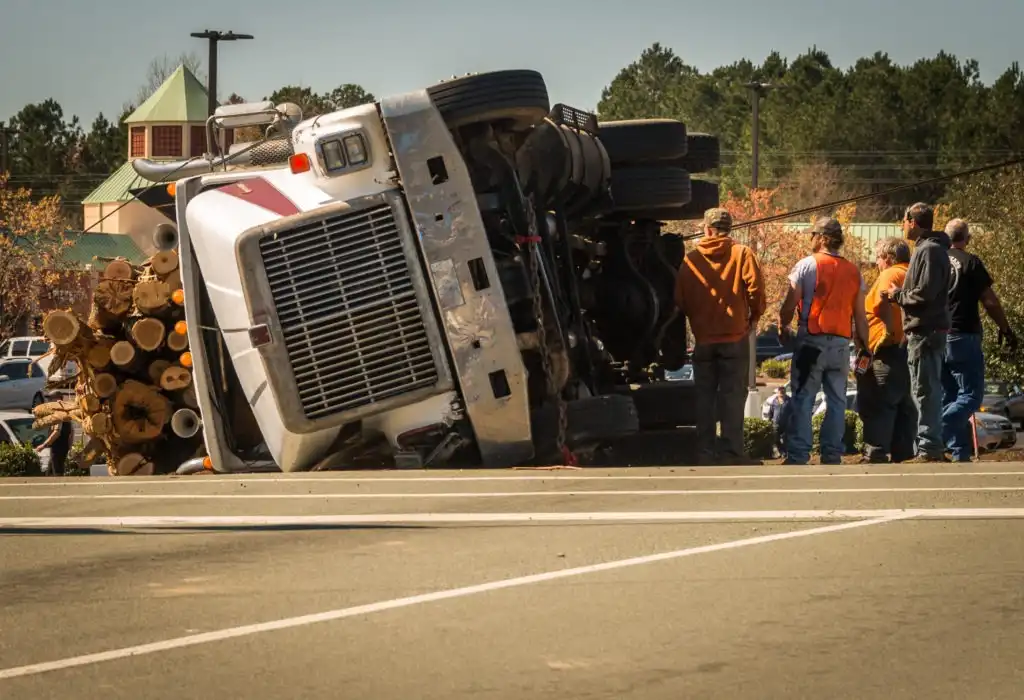Truck accidents often result in severe injuries and significant property damage due to the sheer size and weight of the vehicles involved. When these accidents occur, victims are left dealing with the physical, emotional, and financial aftermath. If you’ve been involved in a truck accident, you may be facing hospital bills, lost wages, and long-term pain and suffering.
In such cases, gathering evidence becomes crucial in helping you build a strong legal case. The evidence you collect immediately after the accident can be the key to proving fault, ensuring a fair settlement, and obtaining the compensation you deserve. In this blog, we will explore the importance of gathering evidence after a truck accident and the types of evidence that are most important for your case.
1. Why Evidence Is Crucial in a Truck Accident Case
Truck accident cases are often complex, involving multiple parties and layers of liability. In many cases, the fault may lie not only with the truck driver but also with the trucking company, vehicle maintenance providers, or even the manufacturers of defective parts. To secure a favorable outcome, you’ll need clear, objective evidence to prove who was responsible and how the accident occurred.
How Evidence Helps:
-
Proves Liability: Evidence helps establish who was at fault for the accident, which is essential for your claim.
-
Supports Your Damages: Proper evidence can help quantify the damages, including medical bills, lost wages, and emotional distress.
-
Refutes Insurance Company Defenses: Trucking companies and their insurance carriers will often attempt to downplay their liability. Solid evidence can help counter their tactics.
2. Essential Types of Evidence to Collect After a Truck Accident
The sooner you can start gathering evidence, the better your chances of building a strong case. Here are some of the most important pieces of evidence to collect after a truck accident:
1. Accident Scene Photos
Photos are one of the most valuable forms of evidence in any personal injury claim. They can capture key details about the accident, such as the positioning of the vehicles, road conditions, and visible damages to both the truck and your vehicle.
What to capture:
-
The location and position of all vehicles involved.
-
Skid marks, debris, or signs of mechanical failure.
-
Damages to the truck, your vehicle, and surrounding property.
-
Any visible injuries you or passengers may have sustained.
2. Truck Driver’s Information
Collect the truck driver’s details, including:
-
Full name and contact information.
-
Driver’s license number.
-
Insurance details.
-
Trucking company name and contact information.
-
License plate and vehicle identification number (VIN).
3. Witness Statements
Eyewitness testimony can play a significant role in validating your version of events. If possible, speak to anyone who witnessed the accident and ask for their contact information. Witness statements can help corroborate your account and provide an impartial perspective on the cause of the crash.
Tip: Record statements immediately after the accident, as memories can fade over time.
4. Police Reports
A police report is one of the most authoritative sources of information after an accident. The report will include details about the accident, any citations issued, and the officer’s preliminary conclusions about who was at fault.
What to do:
-
Obtain a copy of the police report as soon as it’s available.
-
Review the report carefully for any mistakes or inaccuracies, especially regarding who was deemed responsible for the crash.
5. Truck’s Black Box Data
Most modern trucks are equipped with black boxes (Electronic Logging Devices, or ELDs) that record valuable data about the truck’s speed, braking, and other driving behaviors prior to and during an accident. This data can be critical in determining if the truck driver was speeding, fatigued, or engaged in reckless driving.
What to do:
-
Notify your lawyer immediately after the accident to ensure the black box data is preserved before it’s overwritten or erased.
6. Trucking Company’s Maintenance Records
The trucking company may be responsible if the accident was caused by mechanical failure due to poor maintenance. Obtaining the maintenance records for the truck can show whether the vehicle was properly inspected and maintained.
What to look for:
-
Record of brake inspections, tire replacements, and other routine maintenance.
-
Any overdue maintenance issues that might have contributed to the accident.
3. How to Preserve Evidence After a Truck Accident
The first few hours and days after a truck accident are crucial for gathering and preserving evidence. Here are some tips to help you ensure that you gather all the necessary evidence:
1. Act Quickly
As time passes, evidence can be lost or deteriorate. Photos, video footage, and witness statements are best gathered as soon as possible after the accident. Contact an attorney immediately to start gathering evidence on your behalf.
2. Hire an Attorney
An experienced truck accident attorney knows what evidence is crucial for your case and how to collect it. They can handle the legal aspects while you focus on your recovery. Attorneys can also help obtain critical records, such as the truck’s black box data and the trucking company’s maintenance logs.
3. Document Everything
Keep detailed records of all communication with insurance companies, doctors, and anyone else involved in your case. This documentation will serve as supporting evidence throughout your claim.
4. Why Truck Accident Lawyers Are Key in Collecting Evidence
While you may be able to collect some evidence on your own, truck accident lawyers are experts at gathering and preserving evidence in the proper way. They are skilled in dealing with the complex nature of truck accidents and can often access evidence that may be difficult for an individual to obtain, such as:
-
Subpoenaing records: Lawyers can request critical documents, like the truck driver’s driving history and the trucking company’s internal records.
-
Expert testimony: Attorneys may bring in experts who can analyze the black box data or reconstruct the accident scene to support your case.
Tip: A qualified truck accident lawyer can make sure the evidence is handled properly and is admissible in court.
5. The Role of Evidence in Securing Your Compensation
The evidence you gather is critical to determining fault and securing fair compensation. The more robust the evidence, the stronger your case will be. Properly preserved evidence can help you receive compensation for:
-
Medical expenses: Past, present, and future medical treatments for injuries sustained in the crash.
-
Lost wages: Compensation for the time you’ve missed from work due to your injuries.
-
Pain and suffering: Compensation for the physical and emotional trauma caused by the accident.
-
Property damage: Reimbursement for the damage to your motorcycle and other personal property.
Conclusion
Gathering evidence after a truck accident is one of the most important steps you can take in ensuring that you receive the compensation you deserve. From photos of the accident scene to obtaining black box data and maintenance records, each piece of evidence plays a vital role in establishing fault and building a strong case.
If you’ve been involved in a truck accident, the best course of action is to contact an experienced truck accident attorney as soon as possible. They can help you gather the evidence you need, navigate the complexities of your case, and fight for your rights.

